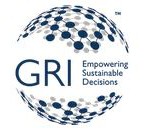As problems in international companies supply chains continue to come under the spotlight, Amsterdam-based Global Reporting Initiative (GRI) today announced the launch of the GRI Global Action Network for Transparency in the Supply Chain. GRI is calling on multinational firms to take up the gauntlet by promoting sustainability in their supply chains ie the companies who provide them with clothing, food, toys and all other products and services – through greater transparency in disclosing their economic, environmental and social performance.
While the complexity of the supply chains used by many multinationals continues to expand, supply chains do have leaders – the ultimate retailers or brand owners. These leaders increasingly find themselves under pressure from consumers, governments and other stakeholders to take responsibility for what happens throughout the chain.
GRI has a strong track record in working with both multinational enterprises and smaller firms in driving the sustainability agenda forward through transparency in reporting.
Recently, the project Transparency in the Supply Chain, in which GRI partnered with the German Development Agency GTZ, brought multinationals together with smaller firms to explore ways of embedding transparency in the supply chain.
GRI is now calling for more companies to get involved in the area through the new global network, which will bring more companies together to ensure their suppliers get support and guidance to report publicly on their sustainability performance and challenges using the GRI G3 Guidelines the worlds most widely-used sustainability reporting framework.
One of the key benefits for global network members will be the opportunity to take part in GRI-certified training in disclosure on key sustainability indicators for multinational firms suppliers.
As has been demonstrated by the recent controversy involving Primark, (and a host of companies before it), the risks to reputation from a lack of transparency in the supply chain can be very serious indeed.
We are convinced that only by bringing about transparency throughout the supply chain can companies fully understand and work towards dealing with very serious risks not only to the environment and society, but to brand reputation, said Nelmara Arbex, Director of Learning Services at GRI.
Its now time for companies to promote transparency, achieved through publicly available standardized reporting on economic, environmental and social factors, throughout the supply chain added Arbex.
To mark the launch of the global network, GRI has published Small, Smart and Sustainable a publication which shares the experiences of companies in the global supply chain from India, Chile, China, South Africa, Thailand, and Turkey. It captures the challenges and opportunities as seen by the suppliers as well as the multinationals that have participated in the project of GRI / GTZ project. The publication is available to download free from the GRI website; hard copies can also be bought from the site.
In the coming months a new GRI publication will be launched outlining a step-by-step approach to sustainability reporting for SMEs in the supply chain.
To download a copy of Small, Smart and Sustainable please visit:
http://www.globalreporting.org/CurrentPriorities/SupplyChain/



